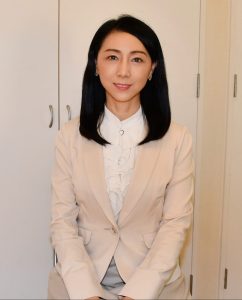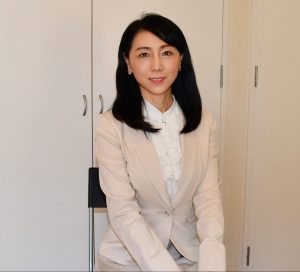
劉教授
The Major in Computer Science and Computer and Communications Engineering consists of a range of fields that enable students to acquire general and advanced knowledge of hardware, software, and networks. We aim to maximize the individual potential of each student and thereby foster future engineers who will be able to contribute to the fields of Computer Science and Computer and Communications Engineering in a global context and a variety of professions.
CSCE major features an international curriculum modeled in line with the IEEE/ACM Computing Curricula. It is designed to enable students to master a wide variety of specialized fields and develop the flexibility to work across disciplines.
Students are required to study the fundamental CSCE courses including Fundamentals of Programming, Logic Circuits, Computer Architecture, Algorithms and Data Structures, Information Network Systems, etc. In addition to these subjects, we offer many elective courses such as Signal Processing, Circuit Theory, Artificial Intelligence, Software Engineering, Multimedia Systems, Operating Systems, Digital Signal Processing, Bioinformatics with ICT, Wireless communication, Image Processing, etc. By taking courses, students have the opportunity to access a diverse group of faculty members with expertise in various areas of computer science and communication engineering.
Students can choose their preferred laboratory to conduct research projects starting in the third year and are required to be assigned to a laboratory to undertake their graduate program in the fourth year. The research conducted in these laboratories is often specialized, with an emphasis on a specific topic.
We provide a multicultural environment for students from around the world. Students study alongside others from diverse cultural backgrounds. We offer orientation sessions and exchange meetings to help international students acclimate to their new environment. All students regardless of their background have equal opportunities to access educational resources.
Additionally, every semester, we accept exchange students from overseas universities. We also provide CSCE Major students the opportunity to participate in a summer school or study abroad program. The credits students earn from the abroad university can be conditionally transferred.
One specialty of computer science and communication technologies is the overwhelming technological evolution. For example, twenty years ago, when we opened a computer, the components we saw inside were different from what we see today. In the past, computers were relatively simple machines with easily recognizable parts like the CPU, RAM, and hard drive. The level of integration in modern computers or devices has significantly advanced. We seek students who can expand their knowledge and adapt to changing tasks and goals.
We believe that students can learn only when they desire to learn. We create a supportive learning environment and hope our students have a passion for learning and a persistent curiosity for exploring the world.
We aim to tailor our teaching to the needs of our students, allowing them to become their ideal selves (whether becoming a programmer, a manager, a researcher, a teacher, or a government official). We are committed to nurturing any talent that society needs.
The keywords of my research interest are wireless communication and sensing.
Wireless communication means to transmit data over a distance without wires or cables. It offers numerous benefits that enhance various aspects of our daily lives. For example, we can get internet access in homes or public hotspots using Wi-Fi technology; Wireless earphones can connect to mobile phones via Bluetooth technology. Moreover, wireless communication has significantly transformed various industries. For instance, we can use wireless communication network technology to track the location and status of the robots within the manufacturing facilities and control the robots in real-time, enhancing efficiency and safety.
To realize wireless communication, a broad and deep understanding of various fields of knowledge is required, such as hardware configuration, communication link design, wireless signal processing, and network architecture. In recent years, wireless communication technology had rapid growth but still has many challenges such as energy efficiency, spectrum scarcity, and security and privacy. My research aims to address these challenges in various aspects from fundamental theories to practical implementations.
Another direction of my research is wireless sensing. It uses wireless technology to detect and analyze various user behavior or environmental conditions, enabling a wide range of applications, from everyday consumer electronics to advanced industrial systems. One of our ongoing research projects involves using microwaves to detect people’s Blood Pressure in a non-contact way. By using machine learning technology to analyze the features of radio waves reflected from our bodies, our blood pressure can be estimated. It does not require people to wrap the cuff around the arm at the level of the heart during the measurement, making the measurement easy and automatic.
As wireless communication and sensing technologies continue to evolve, my research group will keep working and find innovations in various fields.

After you get into a university, the good thing is you have many choices. The bad thing is also you have many choices. Compared to high school students, who take the same courses set by their high school, undergraduates have more freedom to choose courses and handle their personal lives. However, the abundance of options causes stress to students. We encourage students to take risks without the fear of making the ‘wrong’ choice, as this can lead to discoveries and inspiration. To support this spirit, we provide robust support systems that help students navigate the opportunities and challenges they encounter.
Another point is that despite the remarkable advancements in the CSCE field over the past few decades, there are still many unknowns. We welcome students who are brave enough to face the unknown and have the ability to utilize the resources and seek out solutions independently.
Additionally, the students who don’t speak Japanese can have an easy campus life and experience a fair education system equivalent to that of Japanese speakers. All teachers and academic advisors speak English and non-Japanese speaking students can fully participate in academic activities.
We welcome you to join the CSCE Major and experience a diverse environment with greater opportunities for personal and academic growth.